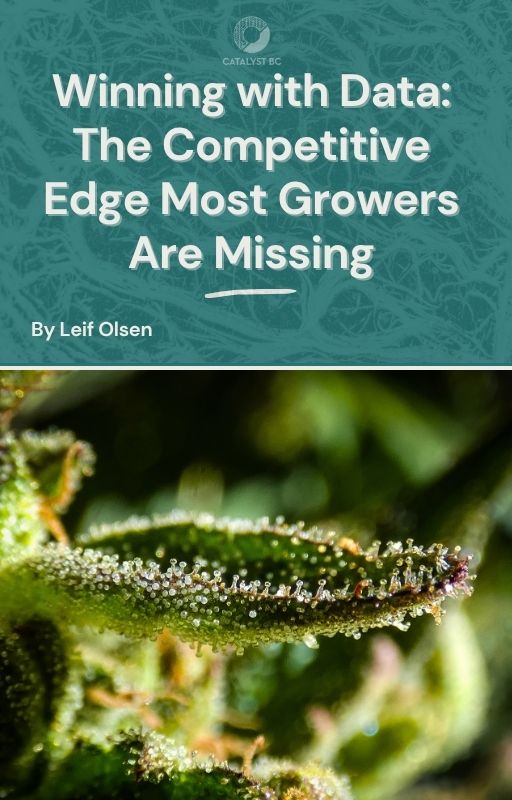Estimated reading time: 6 minutes
Table of contents
- Overview
- Understanding Market Demand in Cannabis Cultivation
- Leveraging Data to Meet Consumer Needs
- Adapting Cannabis Cultivation Practices
- The Role of Innovation in Cannabis Cultivation
- Aligning Cultivation Practices with Branding and Marketing
- Partnering with Cannabis Consultants
- Final Thoughts
- Additional Resources
- Free eBooks For Cannabis Business Success
- Latest Articles

Overview
The cannabis industry has undergone a significant transformation since the days of the initial “green rush.” While the excitement of the early boom may have settled, the industry is far from dormant. Savvy cultivators recognize that long-term success in cannabis cultivation hinges on adapting practices to meet the ever-evolving demands of the market. This is no longer a one-size-fits-all industry. Whether you’re a seasoned grower or new to the field, tailoring your approach ensures you’re equipped to thrive in this dynamic space.
In this guide, we’ll explore how cannabis cultivators can adapt their methods to market demand by focusing on strain selection, innovative growing techniques, sustainability, and the integration of emerging technologies.
Understanding Market Demand in Cannabis Cultivation
The cannabis market is as diverse as its consumers, making it crucial to identify and respond to the unique preferences of different user groups.
Medical vs. Recreational Consumers
Broadly, cannabis serves two key markets: medical and recreational. Medical consumers often prioritize specific cannabinoids like CBD or THC for therapeutic effects, while recreational users are drawn to experiences such as relaxation, euphoria, or creativity. Cultivators must tailor their strain offerings, branding, and cultivation methods to address these distinctions.
Demographics and Preferences
Cannabis preferences also vary across demographics:
- Younger consumers may gravitate towards innovative formats like edibles and vape pens.
- Older consumers might prefer traditional flower or tinctures.
- Geographic differences further shape demand, as cultural attitudes and consumption habits differ across regions.
Emerging Trends
Today’s cannabis consumers are more informed than ever. There’s rising demand for CBD-dominant strains, terpene-rich products, and sustainable practices. Additionally, product types like concentrates, infused beverages, and microdosed edibles are growing in popularity. Staying ahead of these trends helps cultivators maintain relevance in an ever-changing market.
Leveraging Data to Meet Consumer Needs
Understanding market demand requires more than intuition—it demands actionable insights derived from research and analysis.
Sales Data and Consumer Feedback
Sales figures reveal which products are most in demand, their price points, and how preferences vary by region. Meanwhile, consumer surveys provide qualitative insights into unmet needs or areas for product improvement.
Competitor Analysis
By analyzing competitors, cultivators can uncover opportunities for differentiation. For example, offering organic or sustainably grown products can carve out a niche in a crowded market.
Adapting Cannabis Cultivation Practices
Success in cannabis cultivation involves more than planting seeds—it requires a deliberate strategy to align practices with market demand.
Strain Selection
Strain selection is foundational. Different strains offer unique cannabinoid and terpene profiles, influencing their aroma, flavor, and effects. Cultivators should prioritize genetics that align with consumer preferences and trends, such as high-CBD strains or those rich in specific terpenes like limonene (for mood enhancement) or myrcene (for relaxation).
Optimizing Growing Techniques
Efficient cultivation techniques are essential to maximize yield and quality:
- Indoor cultivation offers precise control over lighting, temperature, and humidity.
- Outdoor cultivation takes advantage of natural sunlight, reducing energy costs.
- Hydroponic systems and aeroponics can improve resource efficiency and yield.
Sustainability is increasingly important to consumers. Organic farming practices, reduced pesticide use, and water conservation measures resonate with environmentally conscious buyers.
Quality Control
Quality assurance is non-negotiable. Implementing rigorous quality control throughout the cultivation process—from seed selection to harvest and packaging—ensures consistency, safety, and consumer trust.
The Role of Innovation in Cannabis Cultivation
Research and Development (R&D)
Innovation is the backbone of progress in cannabis cultivation. Through R&D, growers can develop new strains, experiment with cutting-edge techniques, and enhance their products to align with consumer demands. For example:
- Testing different light spectra can optimize growth rates and cannabinoid production.
- Exploring nutrient delivery systems can improve plant health and yield.
Emerging Technologies
Technological advancements have revolutionized cultivation:
- AI-powered monitoring systems allow growers to track plant health and environmental conditions in real-time.
- Automated irrigation systems reduce water waste and ensure consistent hydration.
- Genetic editing tools enable the development of strains with tailored cannabinoid profiles.
By embracing these innovations, cultivators can stay competitive while minimizing resource use and environmental impact.
Aligning Cultivation Practices with Branding and Marketing
Cultivation methods are not just operational decisions—they shape the narrative of your brand.
Brand Positioning Through Cultivation
Whether your brand emphasizes organic methods, sustainability, or high-tech precision, these choices must align with your target market’s values. Highlighting these practices in marketing materials can differentiate your brand in a competitive marketplace.
Communicating Value
Consumers increasingly seek transparency. Sharing details about your cultivation practices—such as pesticide-free farming, eco-friendly techniques, or the use of renewable energy—builds trust and loyalty.
Partnering with Cannabis Consultants
Navigating the complexities of cannabis cultivation can be daunting. This is where cannabis consultants, like the experts at Catalyst BC, prove invaluable.
The Value of Expertise
Cannabis consultants bring a wealth of industry knowledge, offering guidance on everything from strain selection and facility design to regulatory compliance and market positioning. They work collaboratively with cultivators to ensure operations align with market demand and business goals.
Catalyst BC: Your Partner in Success
With over 50 years of experience and a proven track record of designing 11 million square feet of cultivation space, Catalyst BC helps cultivators achieve operational excellence. Their tailored solutions encompass:
- Facility design optimized for efficiency and yield.
- Market research to identify high-demand products.
- Sustainability strategies to align with consumer values.
Partnering with Catalyst BC empowers cultivators to thrive in competitive markets throughout the world, delivering products that resonate with today’s cannabis consumers.
Final Thoughts
Tailoring cannabis cultivation to market demand is more than a strategic choice—it’s essential for long-term success. By understanding consumer preferences, leveraging data, and adopting innovative techniques, cultivators can stay ahead of the curve.
Whether you’re optimizing growing methods, selecting strains that align with trends, or embracing sustainability, aligning your cultivation practices with market demand ensures your operation remains competitive and profitable.
Ready to elevate your cannabis business? Contact Catalyst BC today and discover how their expertise can help you grow—not just plants, but your brand and bottom line.
Additional Resources
Free eBooks For Cannabis Business Success
Latest Articles
- Cannabis 280E Compliance and COGS Optimization Expert StrategiesThe cannabis industry operates under a unique federal tax burden imposed by Internal Revenue Code (IRC) §280E. While state legalization has flourished, this provision, which denies deductions for ordinary business expenses of trades dealing in controlled substances, remains the single greatest threat to cannabis profitability.
- Owner’s Rep for Cannabis Dispensary Buildout: Expert Compliance & Project ManagementNavigating the highly-regulated world of a cannabis dispensary buildout requires specialized expertise beyond standard construction. The complexity of securing a final operating license, controlling costs, and preventing opening delays for a cannabis dispensary hinges on professional guidance. This is why securing an experienced Owner’s Rep for Cannabis Dispensary Buildout is a critical first step.
- The Indispensable Owner’s Rep for Cannabis Cultivation Facility Buildout: Expert Project Management to Prevent Cost OverrunsIn this high-stakes arena, the Owner’s Rep for Cannabis Cultivation Facility buildout is the crucial strategic partner. They are the expert professional who ensures the owner’s vision is translated into a successful, operational, and profitable reality.
- Cannabis Dispensary Compliance: Training, Inventory & ProfitabilityIn today’s regulated cannabis market, cannabis dispensary compliance is not optional—it is the foundation of a sustainable and profitable retail business. Every dispensary, from boutique shops to multi-state operators, must follow strict dispensary regulatory compliance standards, maintain accurate cannabis inventory management systems, and invest in ongoing cannabis dispensary training programs.
- Beyond Compliance: Implementing a Cannabis Dispensary Secret Shopper ProgramAs a cannabis retail owner, you operate in a high-stakes environment where federal prohibition meets state-regulated commerce. Your retail floor is not just a sales hub—it’s a constant target for mandatory inspection and the front line for brand differentiation. The most critical tool for navigating this complex reality is the professional, recurring Cannabis Secret Shopper program.
- Architects of the Cannabis Industry: What Defines An Expert Canna Consultant?An expert Canna Consultant is the strategic architect and operational engineer of a cannabis venture. They are specialized cannabis industry consultants who translate ambiguous legislation into profitable business processes.











